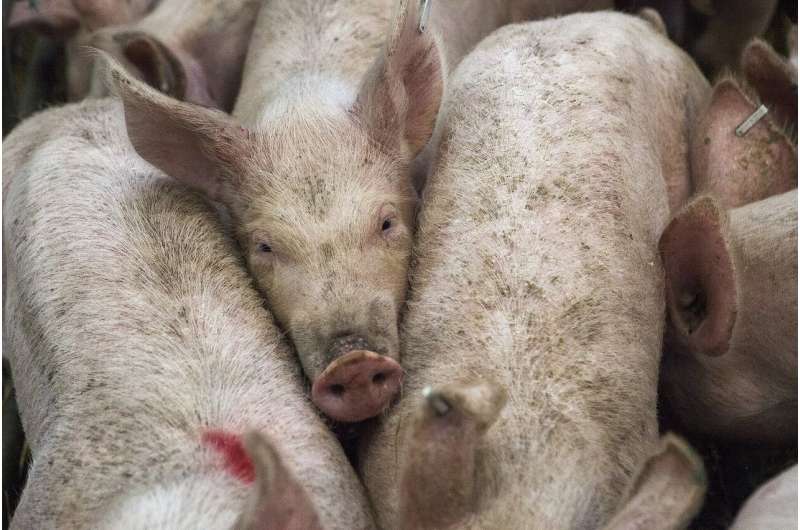Relocating China's pig industry could have unintended consequences

Writing in Nature Sustainability, an international group of agriculture and environmental scientists warn that the Chinese Government's desire to relocate its pig industry from the South, in order to protect water quality could have unintended detrimental consequences.
In 2015 the Chinese Government banned livestock production in some regions to control surface water pollution near vulnerable water bodies. This has reduced the availability of pork at a period when consumption is forecast to increase from 690 to 1,000 million head per year between 2018-50.
It is expected that pig production will move to southwest and northeast provinces, where more land is available for pig production. But the scientists warn that this could cause the transfer of pollution to new regions, where there are large areas of forest and fragile natural grasslands. The authors raise concerns that the appropriate technologies may not also be transferred to the new production areas due to lack of investment and incentives. They suggest that costs to the citizens from air pollution would balance out any profit from pig production.
The authors conclude:
"We must consider the multiple risks to the environment, including surface water pollution, air pollution, soil degradation and threats to human health, but crucially also the risks associated with long-distance transport of livestock, including the spread of animal diseases."
Dave Chadwick, one of the co-authors Professor of Sustainable Land Use Systems at Bangor University, also co-leads a new research group in the Interdisciplinary Research Centre for Agriculture Green Development in the Yangtze River Basin, in Southwest University (Chongqing, China). He added:
"Whilst there is an urgent need to relocate pigs from southern provinces to protect vulnerable watercourses, the new potential development regions have large areas of forests and fragile natural grasslands that would suffer from nitrogen deposition and diffuse water pollution from the new facilities. Investments and incentives for technology to manage manure and minimize ammonia emission don't appear to have followed the new production systems in these areas. So, whilst this policy may seem attractive in the first instance, including boosting the economy of these less-developed regions, the wider costs of this transition have not been considered fully. We recommend that these unintended consequences could be addressed through improved spatial planning, adopting strategies to properly allocate manure to local cropping systems, and promotion of pollution mitigation technologies".
More information: Zhaohai Bai et al. China's pig relocation in balance, Nature Sustainability (2019). DOI: 10.1038/s41893-019-0391-2
Journal information: Nature Sustainability
Provided by Bangor University





















